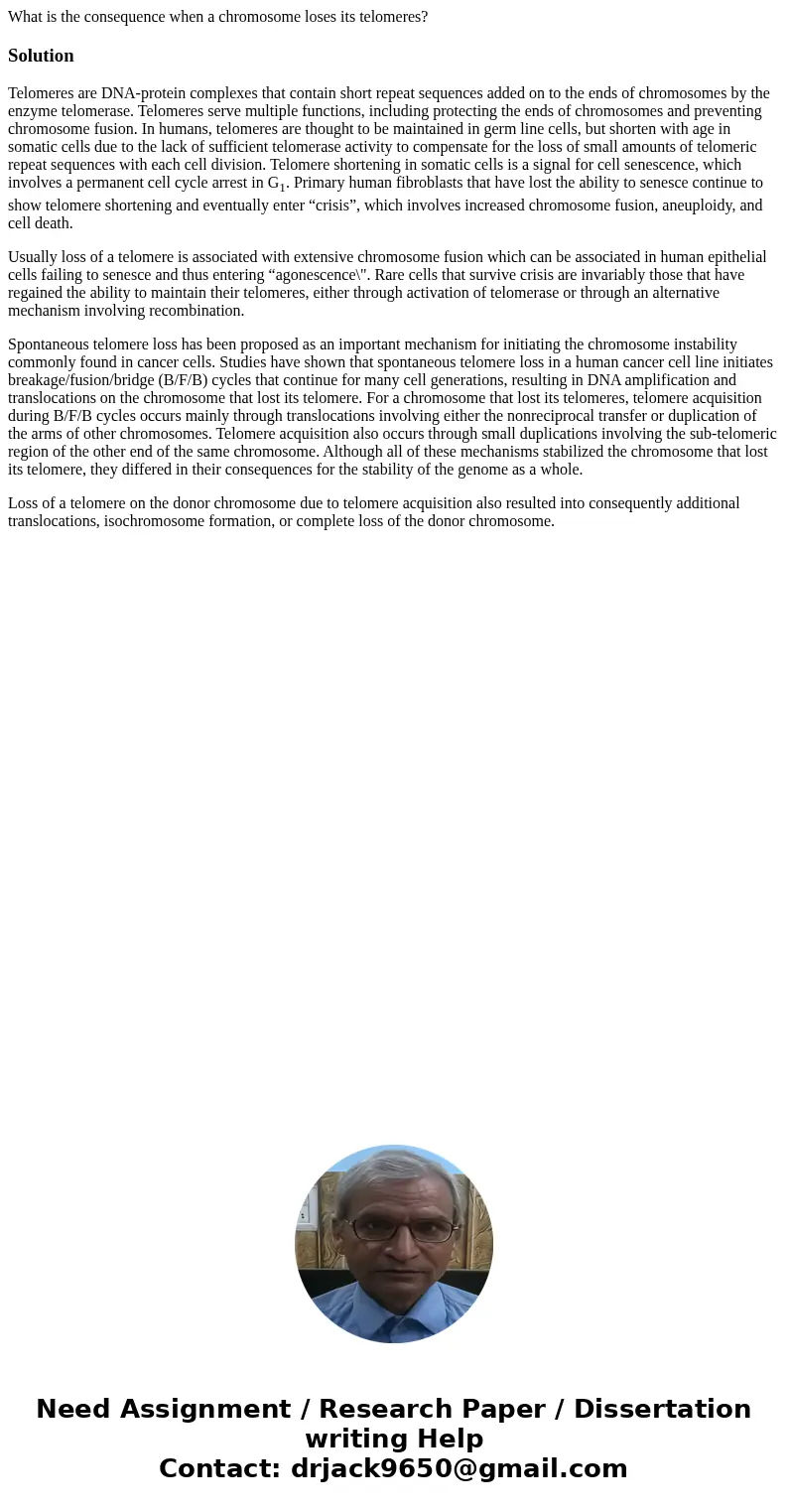What is the consequence when a chromosome loses its telomere
Solution
Telomeres are DNA-protein complexes that contain short repeat sequences added on to the ends of chromosomes by the enzyme telomerase. Telomeres serve multiple functions, including protecting the ends of chromosomes and preventing chromosome fusion. In humans, telomeres are thought to be maintained in germ line cells, but shorten with age in somatic cells due to the lack of sufficient telomerase activity to compensate for the loss of small amounts of telomeric repeat sequences with each cell division. Telomere shortening in somatic cells is a signal for cell senescence, which involves a permanent cell cycle arrest in G1. Primary human fibroblasts that have lost the ability to senesce continue to show telomere shortening and eventually enter “crisis”, which involves increased chromosome fusion, aneuploidy, and cell death.
Usually loss of a telomere is associated with extensive chromosome fusion which can be associated in human epithelial cells failing to senesce and thus entering “agonescence\". Rare cells that survive crisis are invariably those that have regained the ability to maintain their telomeres, either through activation of telomerase or through an alternative mechanism involving recombination.
Spontaneous telomere loss has been proposed as an important mechanism for initiating the chromosome instability commonly found in cancer cells. Studies have shown that spontaneous telomere loss in a human cancer cell line initiates breakage/fusion/bridge (B/F/B) cycles that continue for many cell generations, resulting in DNA amplification and translocations on the chromosome that lost its telomere. For a chromosome that lost its telomeres, telomere acquisition during B/F/B cycles occurs mainly through translocations involving either the nonreciprocal transfer or duplication of the arms of other chromosomes. Telomere acquisition also occurs through small duplications involving the sub-telomeric region of the other end of the same chromosome. Although all of these mechanisms stabilized the chromosome that lost its telomere, they differed in their consequences for the stability of the genome as a whole.
Loss of a telomere on the donor chromosome due to telomere acquisition also resulted into consequently additional translocations, isochromosome formation, or complete loss of the donor chromosome.

 Homework Sourse
Homework Sourse